10 Smallest Hacker Gadgets & Ethical Uses in Pen-Testing


📅8/15/2025
👁️0 views
10 Smallest Hacker Gadgets & Ethical Uses in Pen-Testing
The tools that hackers and cybersecurity experts use are getting smaller as technology does. When it comes to verifying the security of networks, systems, and hardware, these tiny yet mighty gadgets that fit in your pocket can make a big difference. These devices assist penetration testers in finding vulnerabilities before malevolent hackers may take advantage of them when utilized properly.
Your Future Starts Here – Reserve Your FREE Demo Class Now!
![]()
In this article, we’ll explore 10 of the smallest hacker gadgets, their applications, and how ethical hackers can utilize them to strengthen security during penetration tests will all be covered in this article.
1. USB Rubber Ducky
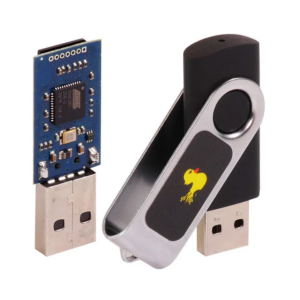
Size: USB Stick
Use: Automates keystrokes and executes scripts rapidly.
Use Cases:
- Testing physical security: USB Rubber Ducky is a tool used by ethical hackers to mimic what occurs when a malevolent actor takes control of a computer. After being inserted, it rapidly carries out pre-programmed tasks, such as launching a terminal and removing malware or obtaining private information.
- Automating tasks: Additionally, it is employed for benign objectives, such as computer automation of repetitious tasks.
Ethical Use: This program can be used in penetration testing to determine whether sensitive systems are susceptible to USB attacks. They may examine if machines in high-security locations automatically launch programs without doing the necessary security checks (such as turning off USB ports or configuring multi-factor authentication).
2. Wi-Fi Pineapple
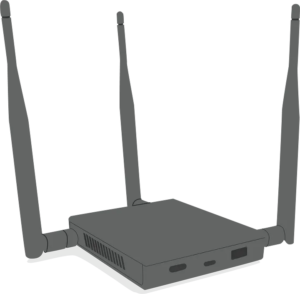
Size: About the size of a portable router
Use: Generates rogue access points and looks for weak Wi-Fi networks.
Use Cases:
- Man-in-the-middle (MITM) attacks: This device is used by ethical hackers to evaluate users’ vulnerability to rogue Wi-Fi access points. By tricking users into joining a fake network, the Pineapple allows hackers to intercept traffic and steal private data.
- Wi-Fi sniffing: The Pineapple has the ability to record wireless communication and examine it for security flaws like weak passwords or insecure protocols.
Ethical Use: To see how simple it would be for an attacker to set up a phony access point and obtain private information, pen testers can mimic Man-in-the-Middle (MITM) attacks. This aids businesses in comprehending the danger of users joining dubious networks.
3. Flipper Zero

Size: A device the size of a credit card
Use: Uses Bluetooth, NFC, RFID, infrared, and other technologies to communicate with devices.
Use Cases:
- RFID/NFC testing: By cloning or reading cards, hackers may employ it to test RFID access systems for vulnerabilities.
- Remote control testing: In order to determine whether unauthorized signals can take over, the Flipper Zero can record and simulate signals from infrared devices, such as TV remote controls.
Ethical Use: The Flipper Zero is used by pen testers to examine the security of wireless protocols, access cards, and Internet of Things devices. For instance, they might see if cloning a key card can get around a building’s access system.
4. HackRF One
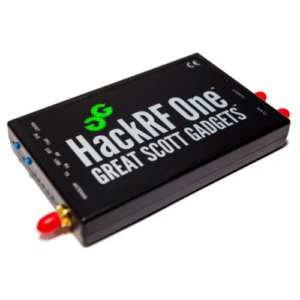
Size: A bit larger than a deck of cards
Use: Radio signals are sent and received by software-defined radios (SDRs).
Use Cases:
- Signal interception: HackRF One is a tool used by ethical hackers to listen to and decode wireless transmissions. It is employed in the testing of communication systems, including satellite communications, automobile key fobs, and pagers.
- Replay attacks: To find out if the system reuses the same code, which is a common vulnerability, testers can record a signal, such as from a garage door opener, and play it back.
Ethical Use: This tool is used by ethical hackers to evaluate wireless communication security. For instance, they may check to see if a car’s keyless entry system is susceptible to replay attacks, which could lead to auto theft.
5. Raspberry Pi Zero W
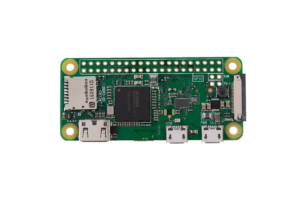
Size: Credit card-sized
Use: Small, inexpensive computer for hacking tasks.
Use Cases:
- Network sniffing: To record network traffic, the Raspberry Pi can be set up to run programs like Kismet or Wireshark.
- Hidden device testing: Because of its modest size, it can be installed in places that are difficult to spot, like offices, to covertly monitor network activities.
Ethical Use: By using a Raspberry Pi Zero W, pen testers can create long-term monitoring stations within networks or buildings that mimic an attacker with physical access. In order to identify vulnerabilities, they use it to record and examine network data.
6. Proxmark3

Size: Credit card-sized
Use: Able to read, write, and simulate NFC and RFID cards.
Use Cases:
- Cloning access cards: It is used by ethical hackers to see if they can replicate RFID or NFC cards that are used for public transport or building access.
- Testing smart cards: It is employed to examine the security of smart cards and determine whether they are susceptible to manipulation.
Ethical Use: Proxmark3 is used by pen testers to examine the security of RFID-based access systems. To test if the system appropriately looks for unique identifiers or whether cloning is sufficient to get around security, they clone cards.
7. KeyGrabber USB Keylogger
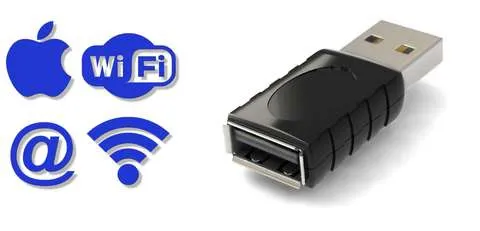
Size: Compact enough to slide between a computer port and a USB connector.
Use: Captures keyboard keystrokes.
Use Cases:
- Monitoring sensitive systems: By physically connecting this keylogger to a target machine, hackers may see how simple it is to obtain private information, such as passwords.
Ethical Use: This is used by pen testers to determine whether physical systems are vulnerable to keylogging attacks. They demonstrate the significance of safeguarding USB ports in delicate locations by connecting a keylogger and recording keystrokes.
8. Bash Bunny
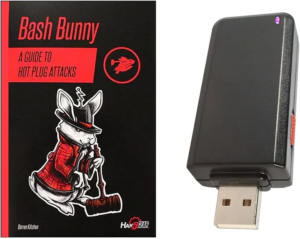
Size: USB stick-sized
Use: Provides intricate payloads for hacking and automation.
Use Cases:
- Automated network attacks: The Bash Bunny may swiftly take advantage of network weaknesses by automating attack scripts that retrieve saved Wi-Fi passwords or fake DNS.
- USB-based attacks: It can be used to show how easily an unsecured computer can be compromised by a malicious device.
Ethical Use: Bash Bunny is used by ethical hackers in penetration testing to determine whether open systems and USB ports are vulnerable to automated attacks. It can demonstrate the speed at which an attacker with physical access could compromise a system.
9. LAN Turtle
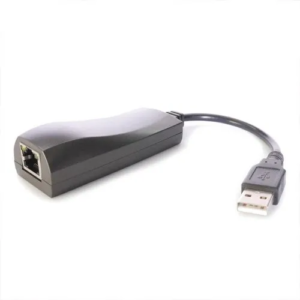
Size: A tiny, discrete Ethernet adapter
Use: Enables network connectivity from a distance using an Ethernet connection.
Use Cases:
- Network monitoring: Once LAN Turtle is connected to a network port, hackers can use it to remotely monitor network traffic.
- Network backdoor: In order to mimic an attacker who has infiltrated an internal network, it can also open a backdoor for remote access.
Ethical Use: Pen testers use LAN Turtle to test what would happen if an attacker gained access to a network port or to mimic an insider danger. This aids in determining whether network ports in delicate settings are adequately secured.
10. ESP8266/ ESP32
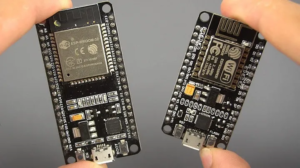
Size: The size of a thumb, roughly.
Use: Bluetooth and Wi-Fi-capable microcontroller.
Use Cases:
- Wi-Fi de-authentication attacks: Devices can be forced in order to reconnect and disconnect to a rogue access point by using the ESP8266 to conduct deauth attacks on Wi-Fi networks.
- Bluetooth sniffing: It has the ability to record Bluetooth conversations and verify that they are securely encrypted.
Ethical Use: These inexpensive microcontrollers are used by pen testers to examine the security of Bluetooth and Wi-Fi networks. They mimic network integrity attacks, demonstrating how hackers can obstruct communications or steal information.
Ethical Role of These Gadgets in Penetration Testing
These compact yet effective tools are used by penetration testers, often known as ethical hackers, to mimic actual attacks on networks, devices, and systems. They employ them morally in the following ways:
- Permission: The organization must always give pen testers access to test its systems. This guarantees that the tests are lawful and that enhancing security — rather than taking advantage of vulnerabilities — is the main objective.
- Simulating real attacks: By simulating the methods employed by actual hackers, these tools assist pen testers in identifying weaknesses in businesses.
- Fixing vulnerabilities: Pen testers use these devices to identify vulnerabilities and then offer ways to address them, assisting organizations in strengthening their entire security posture.
Wrapping Up
When deployed by ethical hackers, these tiny devices can enhance security and thwart future cyberattacks because of their potent capabilities. Ethical hackers utilize the tools to find vulnerabilities, bolster defenses, and make sure that organizations are better equipped to handle possible threats, even though the tools themselves can be harmful if used maliciously.
In the bottom line, you will find the most crucial details related to these physical cybersecurity gadgets within the course curriculum of the 1 Year Cybersecurity Diploma Course Powered by AI by Craw Security, the Best Cybersecurity Training Institute in India. For more info, you can give us a call at our hotline mobile number +91-9513805401, and have a word with our superb study consultants.
Your Future Starts Here – Reserve Your FREE Demo Class Now!
![]()



